25 Most Underrated RPGs Ever
From forgotten SNES classics to modern masterpieces, these are some of the most underrated RPGs ever made.
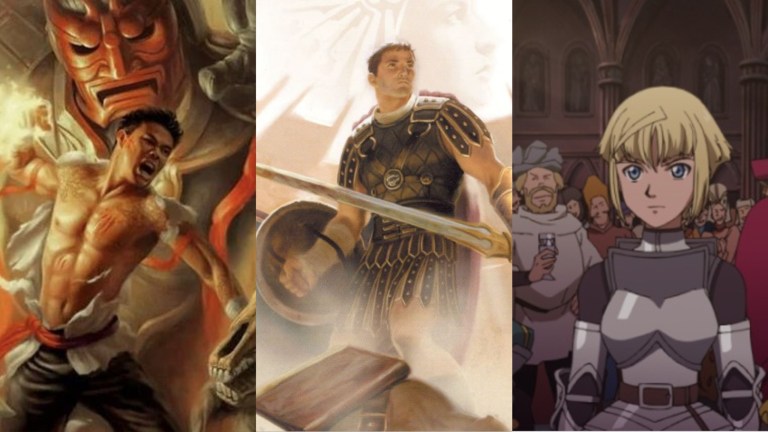
The names of the great RPGs are etched into the history of gaming like caricatures of a civilization’s most legendary heroes upon the walls of a great city. The incredible adventures they take us on often set a standard that many other games try to equal. For as famous as some of the greatest RPGs are, though, not every great RPG has secured its place in history. So many of the genre’s great games remain tragically underrated and overlooked.
Like the most valuable gems found at the bottom of the deepest dungeon, there are so many worthwhile RPGs out there that are waiting to be discovered. Some were buried by circumstance, while others dug their own grave in ways that feel easy to forgive when weighed against their flawed brilliance. The one thing they all have in common is that they exist off the beaten path that only the bravest adventurers dare tread.
So if you think you’ve explored every kingdom, rescued every princess, and pulled every sword from every stone, be sure to check out these phenomenal RPGs that you just might have missed.
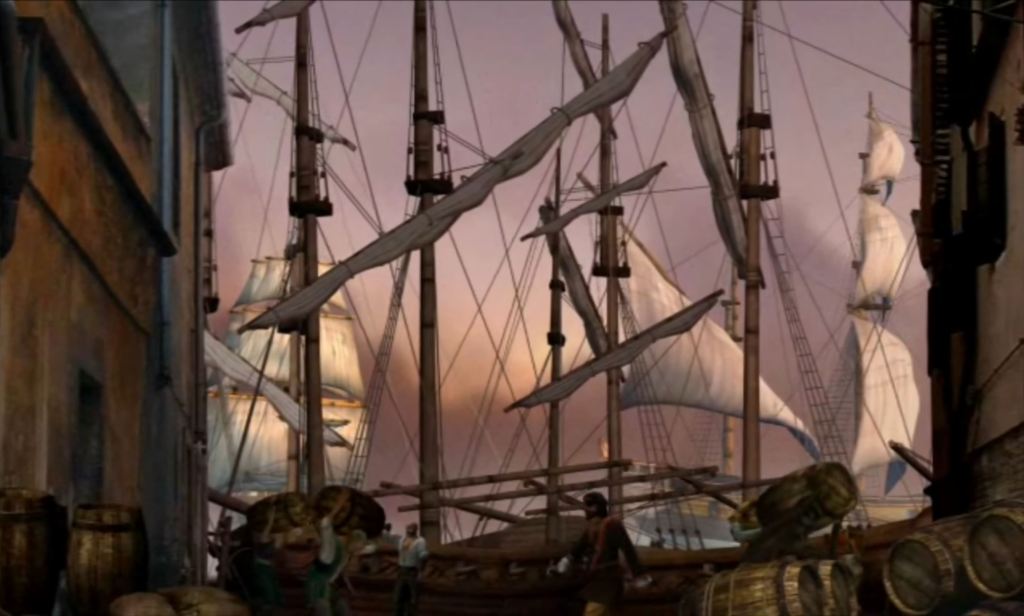
25. Pirates of the Caribbean (2003)
Yes, I’m serious. No, there is no need to laugh. Please stop laughing.
Released in 2003 for Xbox/PC, Pirates of the Caribbean is actually a sequel to the 2000 Russian RPG Sea Dogs. When the game’s publisher got hold of the Pirates of the Caribbean license, they decided to change the name of the project (at least in the West). It was probably a wise move, though the name association did cause some to dismiss this as a casual cash-in.
It is certainly not that, though. While janky and frustratingly complicated, Pirates of the Caribbean is a truly impressive open-world RPG for its time. By focusing on the nuance of pirating (such as trade routes, loyalty to factions/nations, and crew morale), this title takes a surprisingly nuanced approach to a seemingly simple theme.
It’s just a shame that the game isn’t easily available these days. Then again, you are a pirate.
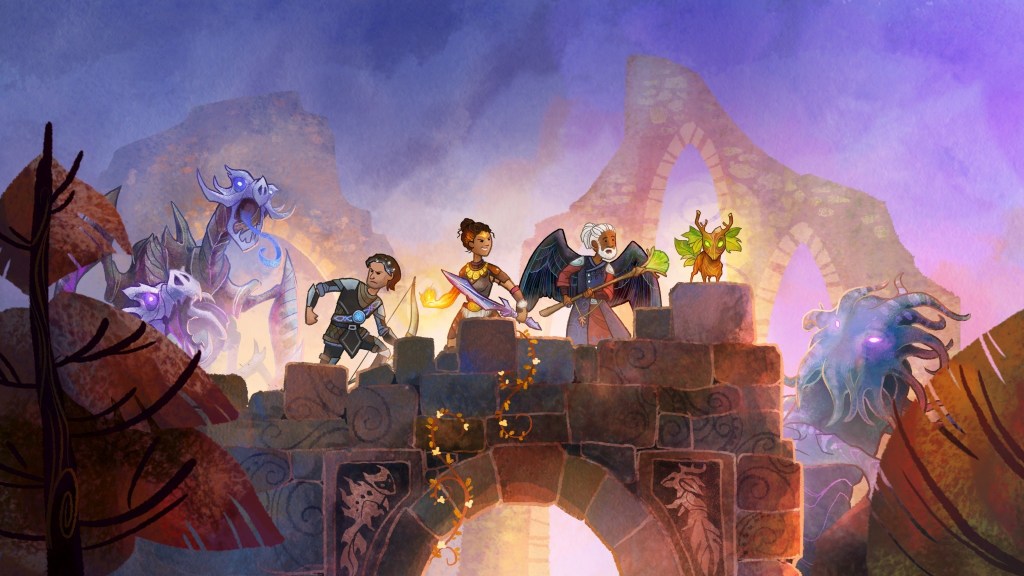
24. Wildermyth
The newest game on this list, Wildermyth flew under a lot of radars in 2021. Thankfully, there is no bad time to lose yourself in Wildermyth (assuming you have dozens of hours to spare, of course).
Wildermyth is a procedurally generated RPG that doesn’t treat that mechanic as a gimmick. I can’t overemphasize the many ways that this game makes major changes to its narrative based on pretty much every character decision you make. So many games have tried to offer such a roleplaying experience, but only the best ever come close to achieving what Wildermyth does.
You’ll experience unforgettable moments in this game that other players will simply never come close to seeing. This is a pure D&D-style RPG that also pays stylish tribute to its pen-and-paper roots with its wonderful pop-up book visuals
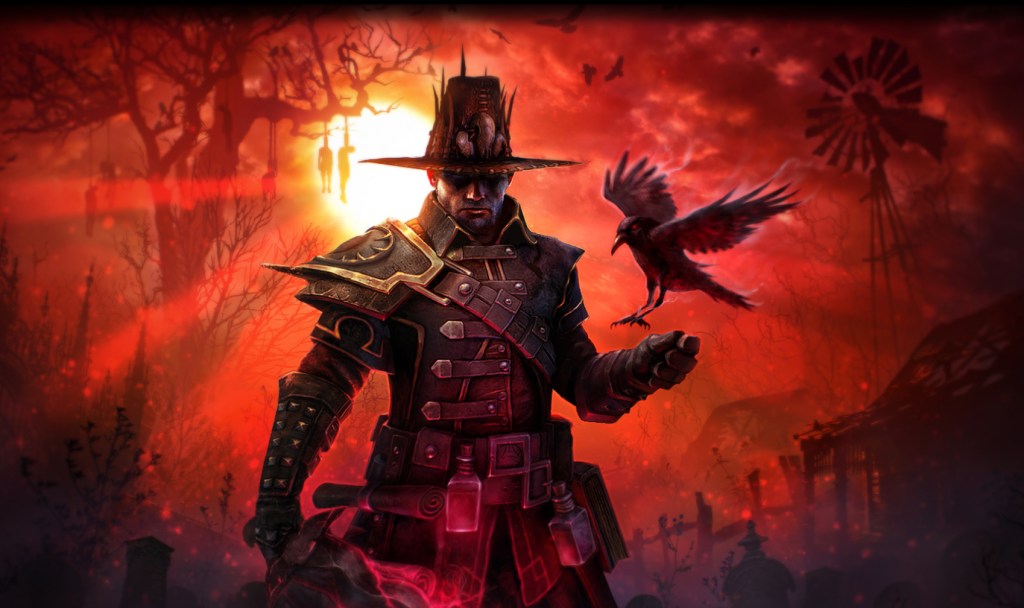
23. Grim Dawn
Released in 2016, Grim Dawn quickly found itself caught in the middle of a strange renaissance for Diablo-like ARPGs. That sadly caused many to overlook this game in favor of the (admittedly excellent) competition. However, Grim Dawn really may be the best game in its particular class.
Grim Dawn’s horror themes prove to be the perfect backdrop for its relentless ARPG gameplay. This game doesn’t hesitate to swarm you with mechanics, possibilities, and enemies. Yet, for as deep as it is, Grim Dawn‘s core gameplay is both remarkably accessible and undeniably addictive. The game has one of the most dynamic and enjoyable build systems I’ve ever seen in an ARPG, and its elaborate factions mechanic lends the experience that piece of more “traditional” role-playing these kinds of titles sometimes lack. It’s a must-play for anyone who has ever enjoyed a Diablo game.
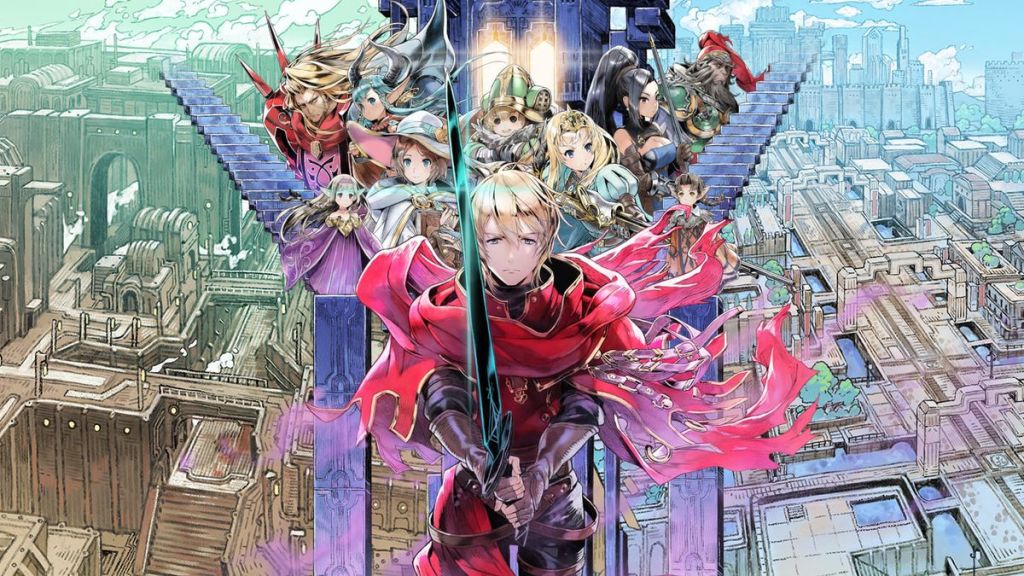
22. Radiant Historia
There are a surprising number of RPGs that incorporate time travel into their narratives. While even a shortlist of such games will include some of the best RPGs ever made, Radiant Historia features one of the most entertaining uses of a time travel mechanic I’ve ever seen in a role-playing game.
While Radiant Historia is slightly more linear than many other time travel-based RPGs, it utilizes a very playful approach to the concept. Solving puzzles and other hurdles often requires you to bounce between alternate timelines and keep track of an increasingly complex (yet engaging) narrative.
However, the true star of this show may be Radiant Historia’s combat system. The grid-based fight sequences are almost strategy-like at times, yet feel accessible despite their depth in ways that the best SNES-style JRPGs often do. This is just a fantastic example of a “retro” RPG that uses familiar mechanics as the basis for something experimental and passionately playful. Its remake, Radiant Historia: Perfect Chronology, is also exceptional.
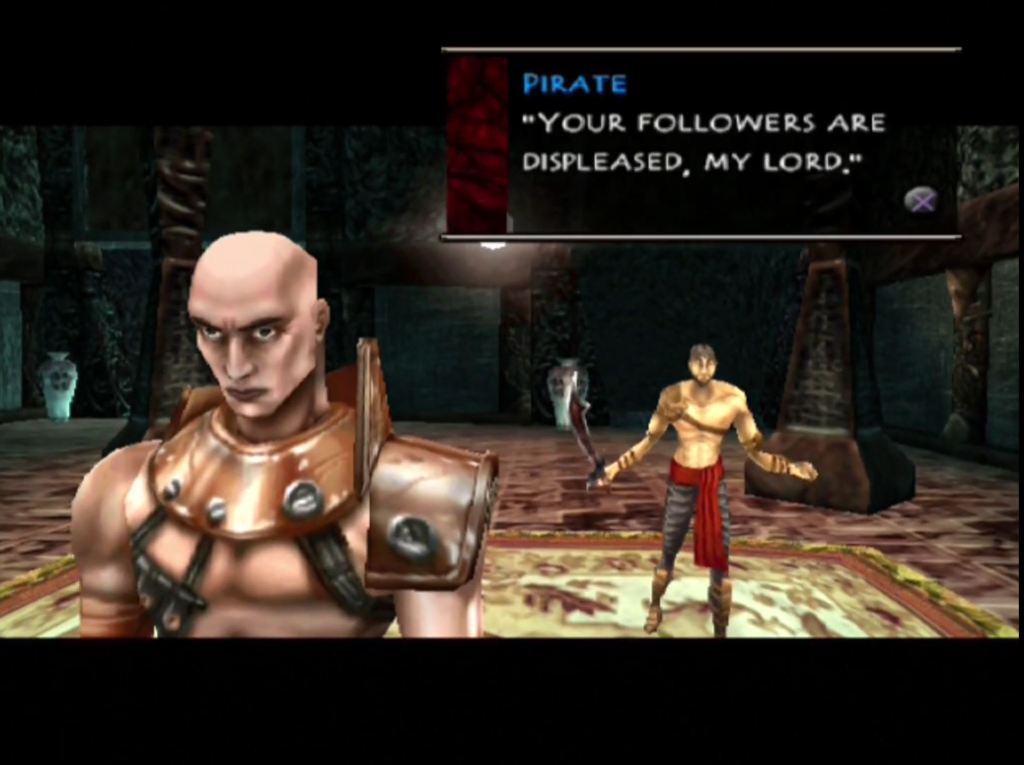
21. Summoner 2
Summoner and its sequel are pretty rough games. Developed and released in the early days of the PS2, these titles remain a relic of the problems that plagued some games of that era. Despite improving upon its predecessor in many ways, Summoner 2’s graphics are blurry, its camera controls can be unwieldy, and it lacks the fluidity you find in some of the best action-oriented RPGs.
Yet, Summoner 2’s issues are quickly overshadowed by the quality of the game’s story. The scope of this game’s mythology and overarching narrative is impressive, but it’s the quality of the smaller adventures you find along the way you’ll likely remember most. From finding the funds required to gradually rebuild a kingdom to helping out characters who could have easily been the stars of other games, Summoner 2 constantly finds ways to keep you engaged. Though its real-time combat isn’t the best, it’s also a sometimes pleasant change of pace from the many turn-based console RPGs of this era.
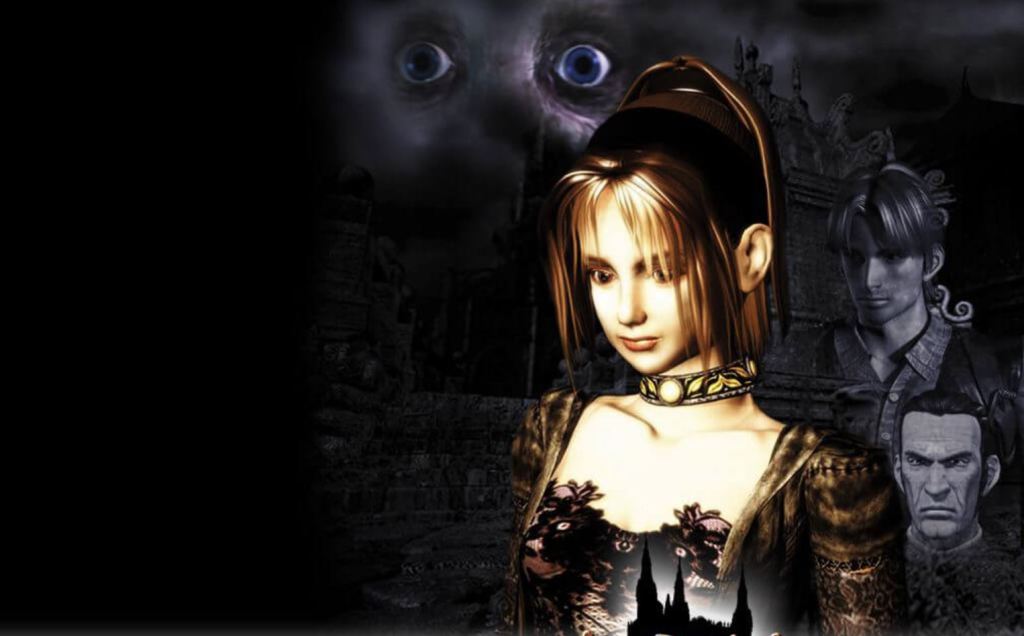
20. Koudelka
A somewhat rare example of a proper horror RPG, this PS1 title attempted to combine traditional JRPG mechanics with various forms of supernatural and psychological horror. To be honest, it doesn’t always work. The game is more eerie than scary, and the JRPG gameplay isn’t always the best vehicle for frights.
Yet, the whole thing is just such a compelling package. At its best, Koudelka combines Resident Evil-style survival horror exploration with PS1-era JRPG combat, leveling, and gearing. At worst, it’s just a really well-done JRPG of that era with some refreshing horror vibes. It’s a testament to the quality of the genre during that time that this one didn’t get a little more love.
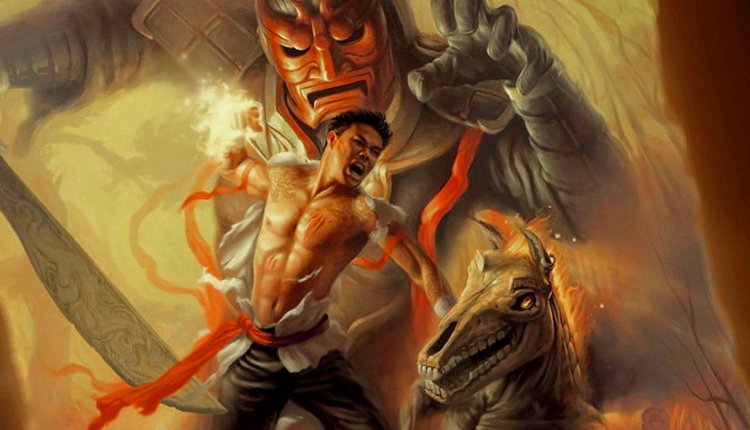
19. Jade Empire
Though arguably the best-known RPG on this list (it was made by BioWare, after all), Jade Empire exists in a strange cultural vacuum. Designed as a kind of experiment that helped bridge the release of the studio’s two larger franchise titles (Star Wars: Knights of the Old Republic and Mass Effect), Jade Empire is sometimes dismissed as a curiosity. To be fair, the game certainly lacks the polish of other BioWare titles of that era.
For the most part, though, the game’s rougher edges are a symptom of its ambition. Jade Empire’s mystical martial arts mythology and the innovative real-time combat system that pairs with that setting remain welcome breaths of fresh air in a genre where those concepts have few true rivals. It’s a kung-fu RPG epic made by one of the best RPG developers ever working at the peak of their game. It’s not perfect, but there is nothing else quite like it.
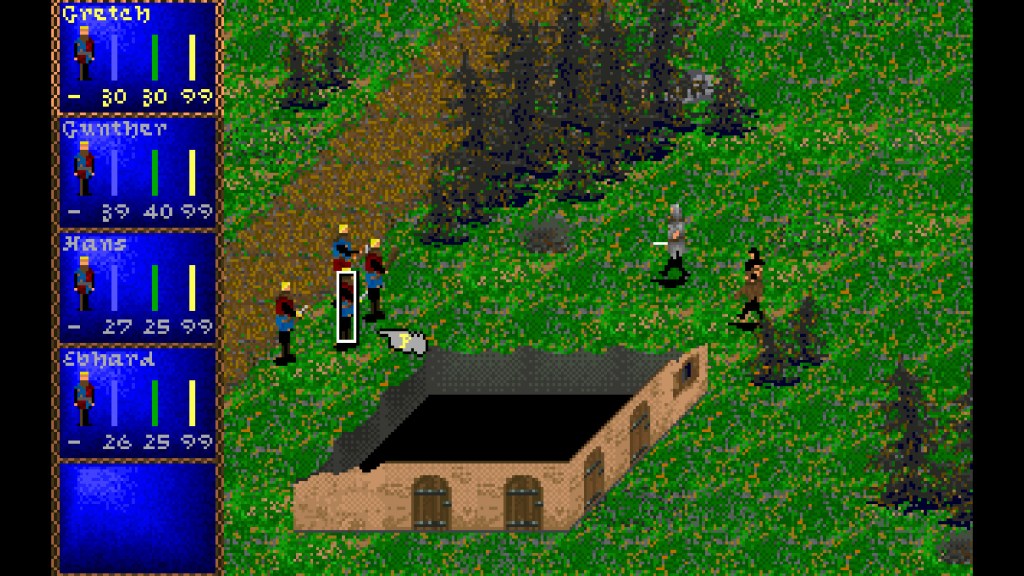
18. Darklands
In many ways, Darklands was too ambitious for its own good. This title’s long (and incredibly expensive) development cycle wasn’t quite long enough to squash all of the bugs that would soon define this game’s release. An expensive RPG that is often remembered for its many technical problems? Yup, they had those in 1992 as well.
Today, though, it’s easier to appreciate the properly patched version of Darklands for what it is. Darklands was essentially an open-world RPG developed at a time before most other studios would dream of tackling such a project. While it can be daunting to comprehend the number of things this game will at least allow you to try (including a dynamic class system based on personality, age, and attributes rather than set skills), the scope of this adventure is truly epic.
However, the real star of this show is the game’s wonderful setting which expertly blends historically accurate settings and time periods with supernatural elements. Why don’t we have more historical RPGs like that?
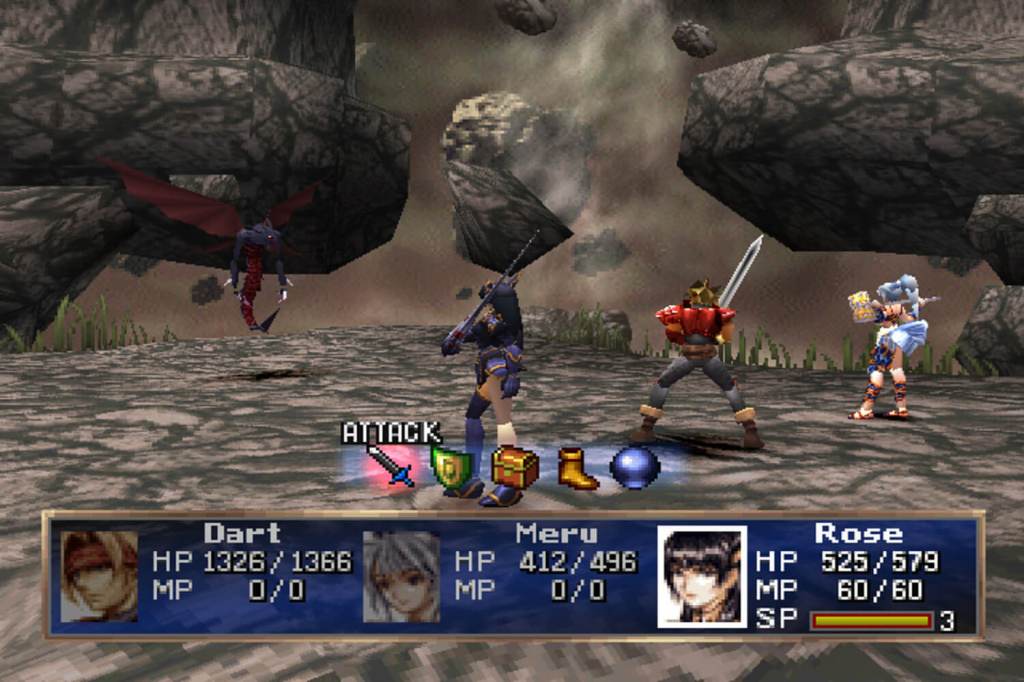
17. The Legend of Dragoon
Another game that has grown in acclaim in recent years, The Legend of Dragoon was supposed to be Sony’s attempt to capitalize on the growing global popularity of JRPGs during the PS1 era. Despite quite a bit of hype (or perhaps because of it), The Legend of Dragoon was met with decidedly mixed reviews. Many simply found the game too similar to the considerable competition yet not as refined and ambitious as those other titles.
There is some truth in those criticisms, but they don’t tell the whole story. Despite its more familiar elements, The Legend of Dragoon offers an action-packed JRPG experience bolstered by some of the most breathtaking cutscenes of the PS1 era. Aspects of this title (especially its engaging combat system) are begging to be revisited to this day. It’s an expertly crafted gem from a golden age of the genre that features enough new ideas to ensure it remains in your memories.
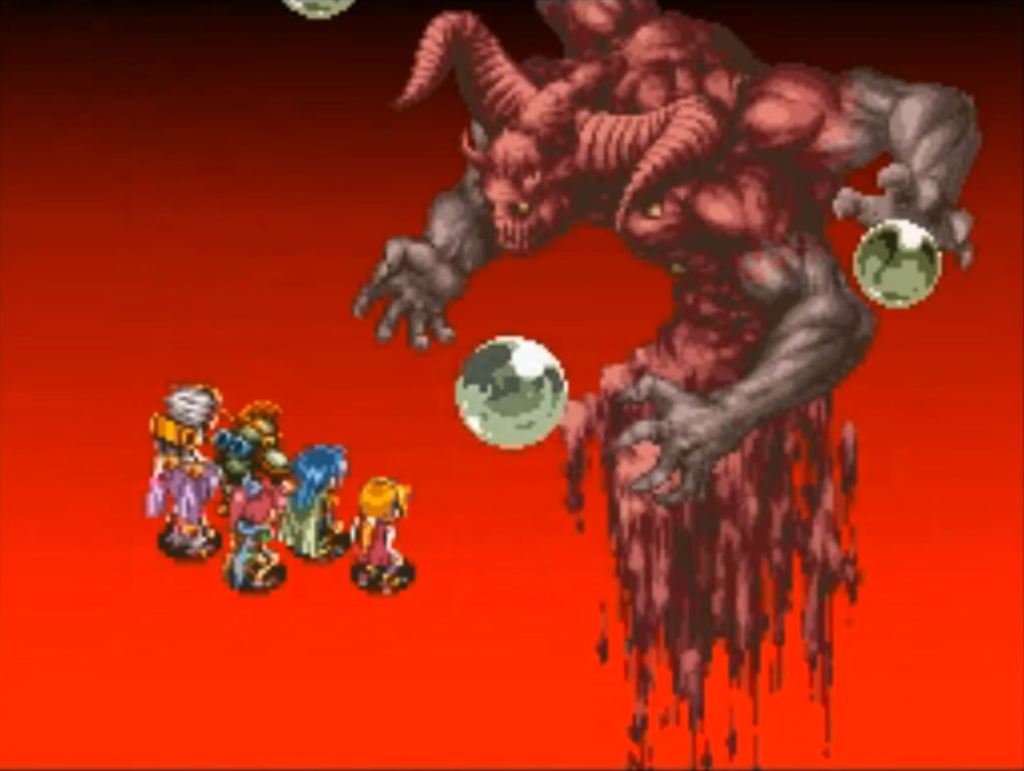
16. Energy Breaker
Like PS1 RPGs, the sheer number of exceptional JRPGs available for the SNES often left many worthwhile genre games looking for an audience. In the case of Energy Breaker, though, there really is no mystery as to why so few people played it. This tactical RPG never made it out of Japan in its day, and it wasn’t exactly a blockbuster in its home country either. It wasn’t until 2012 that an English fan translation allowed many Western gamers to give this game a proper try.
Those who took a chance on this game soon found something wonderful. This is an incredibly deep title from both a gameplay and narrative perspective. While its rich tactical gameplay and the many possibilities (and challenges) it offers can easily turn some off, this title’s classic JRPG elements grant it an adventurous energy that other tactical titles from this time didn’t always benefit from. Fans of Fire Emblem, Final Fantasy Tactics, or even Lufia (the incredible JRPG series developer Neverland went on to make) need to play this one.
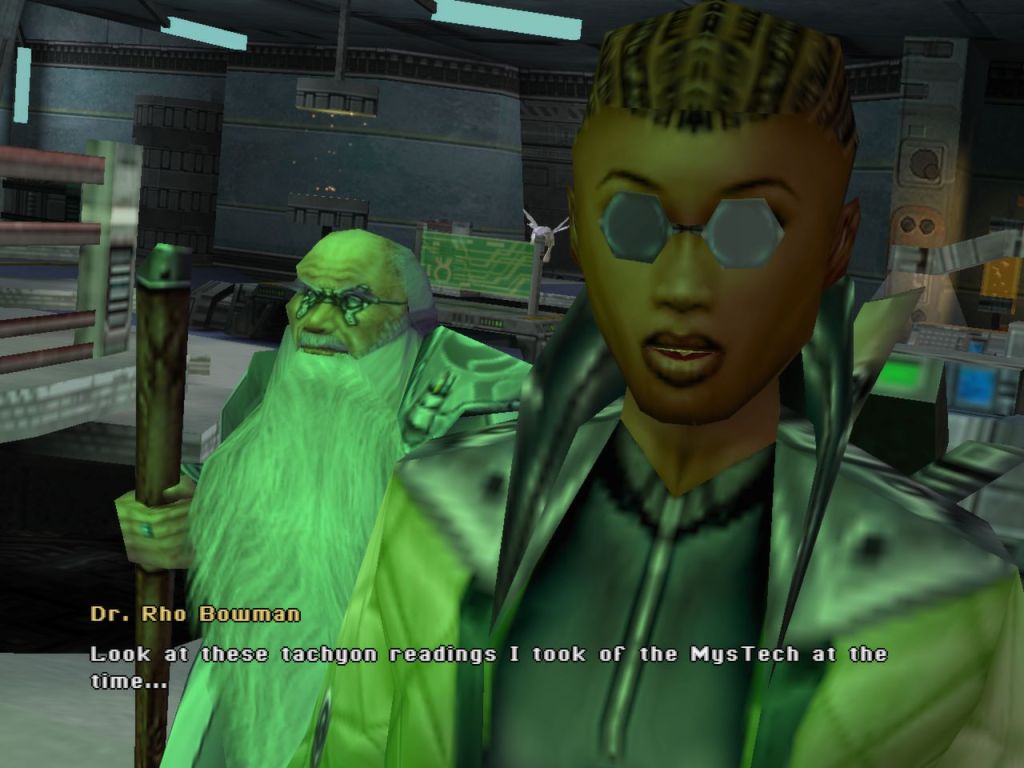
15. Anachronox
Developed by Ion Storm Dallas following their work on the legendarily bad Daikatana, Anachronox attempted to combine elements of immersive sims and classic JRPG concepts. It was ambitious and it was…flawed. There are times when you will be painfully aware that this fundamentally awkward game was developed by the team coming off of Daikatana.
Anachronox is worth most of those headaches, though. Its Blade Runner-esque cyberpunk noir setting provides the perfect backdrop for a game that boldly tries to combine the best gameplay elements of everything from Chrono Trigger to Thief. That combination of concepts often proves to be too much for the game to carry, but when it works, it’s downright brilliant. Elements of this game’s combat, puzzles, and storytelling make it an essential experience despite the various wrinkles.
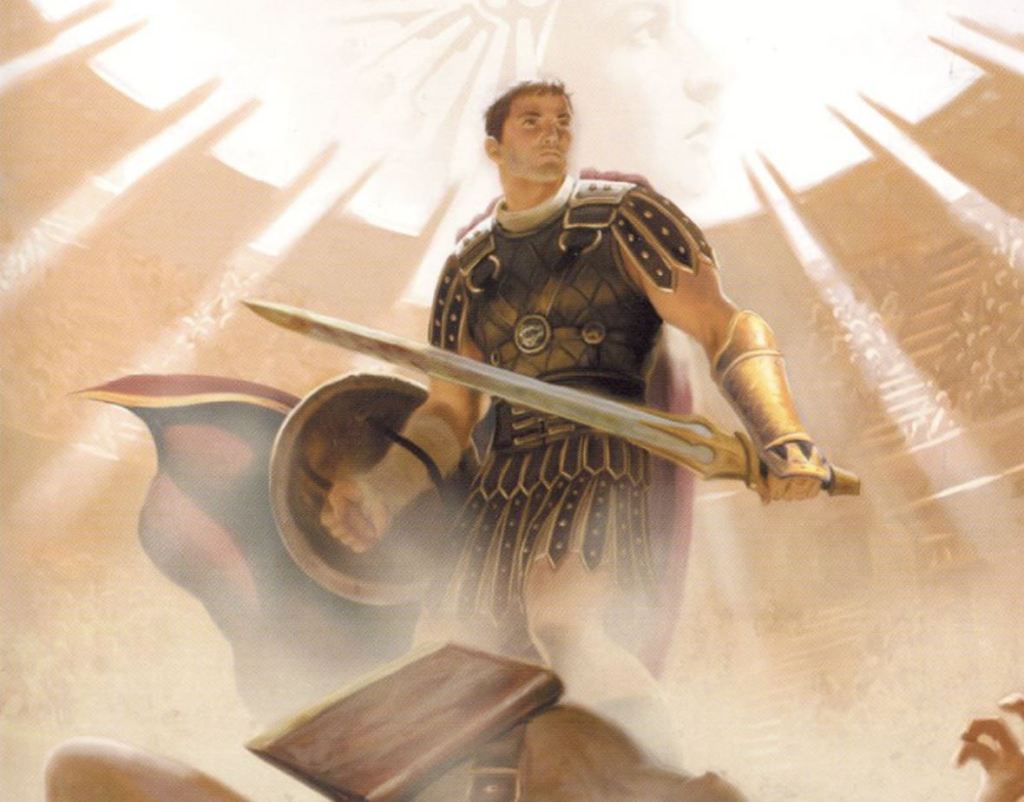
14. Gladius
Though the “gladiator game” genre isn’t particularly deep or especially rich, Gladius is almost certainly the very best example of that concept.
Released by LucasArts in 2003, this gladiator-themed tactical RPG tasks you with surviving various arenas of gladiatorial combat. Along the way, you must also build up your team of gladiators by battling various enemies found between and acquiring new gear.
Though hardly a “simulation” of gladiator combat (you fight quite a few mystical creatures in this game), Gladius’ brilliant tactical gameplay taps into the strategic romanticism of a fundamentally brutal concept. It’s a little bit of Gladiator, a little bit of Jason and the Argonauts, and an incredible RPG experience plucked from an era filled with underrated RPG experiences.
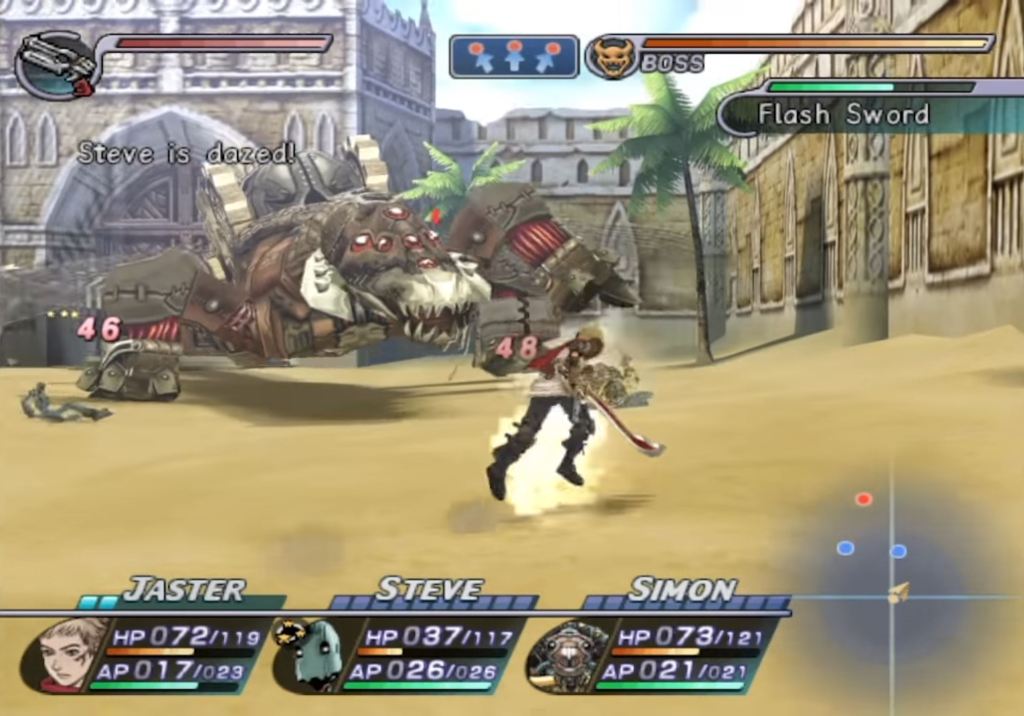
13. Rogue Galaxy
Rouge Galaxy could be seen as developer Level-5’s “blank check” project following the success of the Dark Cloud games and Dragon Quest VIII. At the very least, it was certainly the company’s biggest project yet in terms of production values. Unfortunately, Rogue Galaxy ended up being a massive sales disappointment. Released in Japan the same year as Final Fantasy 12 and in the West the same year as Mass Effect, the game got caught up between some RPG juggernauts and remained lost between the seats for quite some time.
Fortunately, Rogue Galaxy holds up remarkably well. While its plot is one of the game’s most notable weak points, Rouge Galaxy’s “sci-fi meets seafaring” style and wonderful visuals end up carrying a lot of weight. Besides, few other RPGs offer quite so many worthwhile sidequests and activities as Rogue Galaxy does. Breeding creatures that then participate in a Chess-like strategy game, rebuilding a factory, hunting rare monsters…there are elements of this game that could easily be the centerpieces of other RPGs. It’s a shame this game fell so hard when it tried to fly so high.
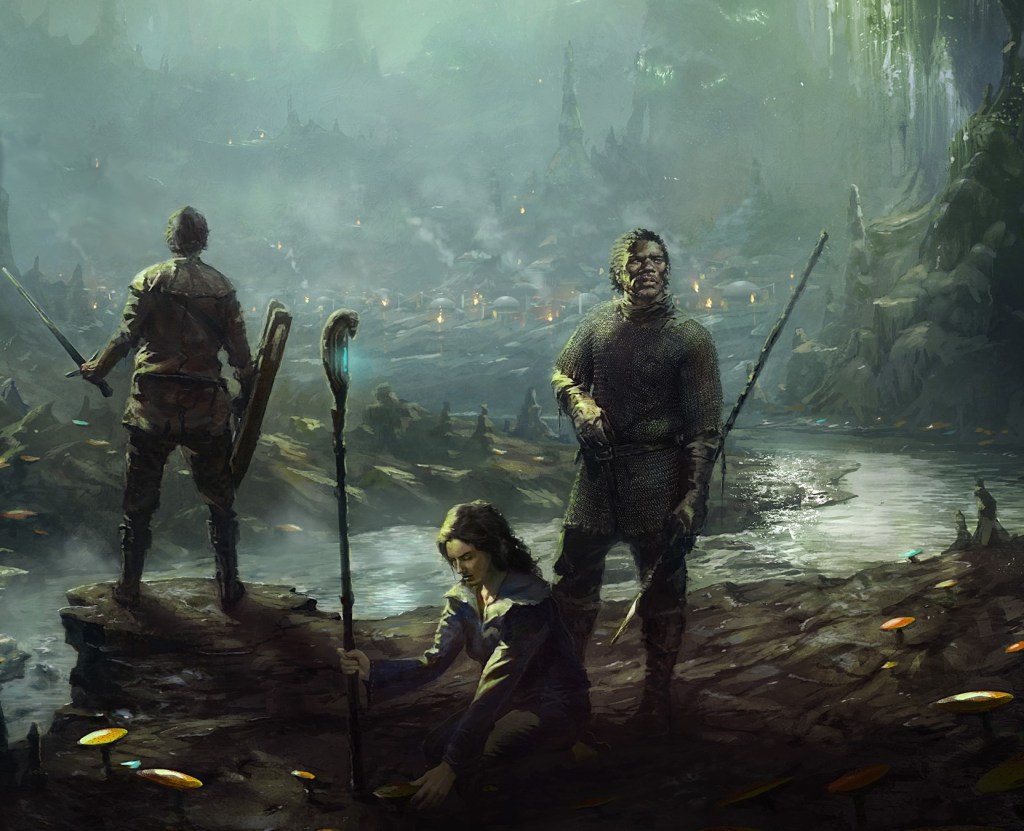
12. Avernum: Escape From the Pit
You are a surface dweller who has just been banished by the cruel Emperor Hawthorne to the underground world of Avernum. Viewed as something between a prison and Hell itself, Avernum is where the emperor sends anyone who displeases or challenges him in any way. However, it turns out that sending your boldest enemies to one place isn’t always the best strategy. Avernum has become a nation unto itself. You will find horrors there, but you’ll also find an opportunity to make your own way. Of course, you could also help lead a rebellion against the same surface dwellers that sent you there.
A remake of 1995’s Exile: Escape from the Pit, Avernum: Escape From the Pit makes the most of a truly incredible premise. Though it outlines three possible paths to victory, the game affords you a remarkable amount of freedom when it comes to how you choose to walk those paths. It can all get pretty complicated, though it’s easier to lose yourself in the many mechanics when the game makes it so easy to lose yourself in the rich world and wonderful side stories. Anyone who finds themselves craving ’90s-era hardcore RPGs needs to know about this one.
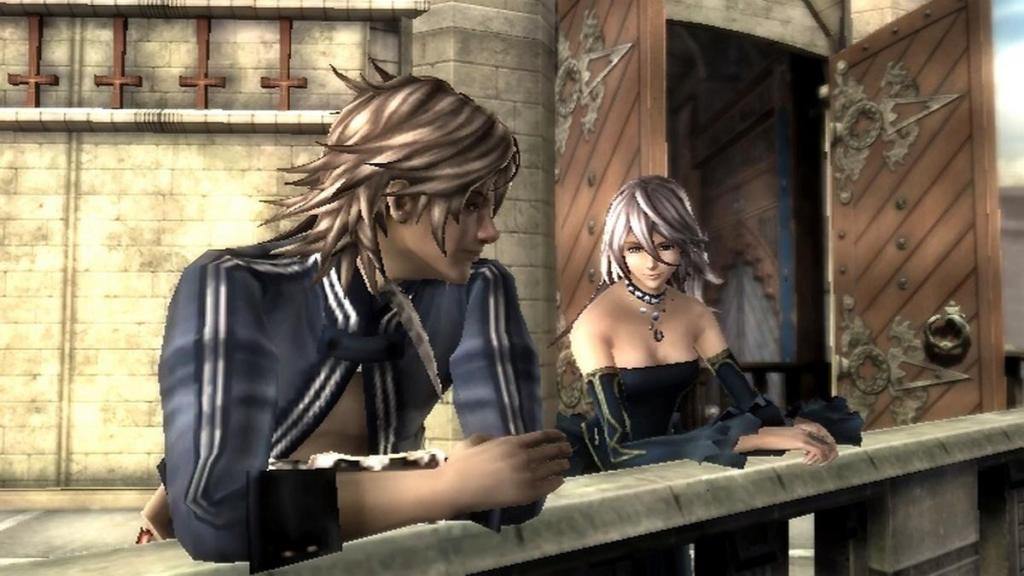
11. The Last Story
After failing to start a JRPG revolution on Xbox with Blue Dragon and Lost Odyssey (two games that could have also made this list), Final Fantasy creator Hironobu Sakaguchi went back to the drawing board. He decided to create a more ambitious JRPG experience that wasn’t quite as reliant on JRPG tropes. Dubbed The Last Story, Sakaguchi’s ambitious project was meant to be the Nintendo Wii’s definitive RPG experience. Much like Blue Dragon and Lost Odyssey, though, The Last Story didn’t quite make the impact that Sakaguchi was looking for. Ironically, one of the most common criticisms of the game was that it stuck too closely to the tropes that Sakaguchi intended to defy.
I’ve never fully understood those criticisms. Even the elements of The Last Story that feel familiar (such as its plot) often play with genre tropes or deploy them in fascinating ways. The gameplay, meanwhile, offers an engaging ARPG experience that best represents Sakaguchi’s desire to do something different. The surprising star of the show, though, is The Last Story’s incredible multiplayer modes, which offer both cooperative and competitive options. Though sadly held back by the Wii hardware in some notable ways, this game really is a brilliant blend of old and new.

10. Resonance Of Fate
Resonance of Fate’s complex combat system is one of the oddest you’ll find in an RPG. Though technically turn-based, Resonance of Fate’s combat sees you constantly change positions in order to gain a strategic advantage over enemies and pull off some wild team combos. It’s easy to imagine some of those who gave this game a shot back in the day bouncing off of that combat system simply because they couldn’t figure it out.
It’s very much worth figuring out, though. Resonance of Fate’s combat system offers one of the best blends of methodical strategy and cinematic action that I’ve ever experienced in an RPG. It’s a thing of beauty, and the game keeps finding new ways to test what you’ve learned and teach you a few new tricks. Granted, some of the game’s other RPG elements can be a little weak (the story is certainly a mixed bag), but this game’s combat immediately elevates it.
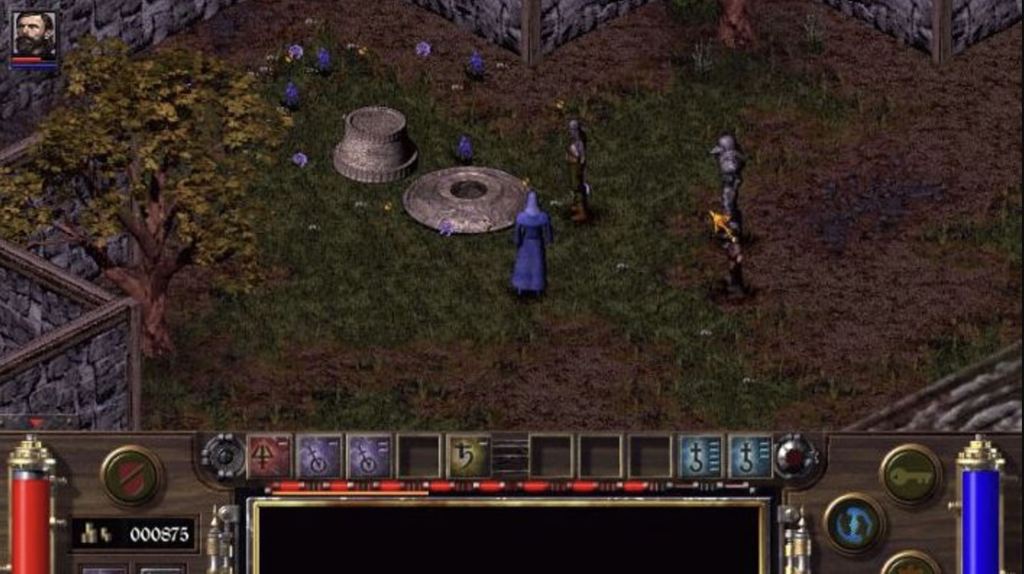
9. Arcanum: Of Steamworks and Magick Obscura
I’m a sucker for any RPG set-up that involves fantasy bumping up against technology. Arcanum’s “Industrial Revolution meets Age of Mystical Wonders” premise is certainly one of the best examples of that concept that I can never get enough of. After all, how many games revolve around a zeppelin crash that may have been caused by ancient, mystical forces?
That fantastic setup results in one of the best PRG stories you may not have had the pleasure to experience yet. I have to emphasize the phrase “RPG storytelling,” since so many of the game’s narrative moments depend on your character and the decisions you make. The level of thought that went into this game’s various interactions and the ways that every piece plays off of some other component is simply stunning. It’s not the most refined RPG of its kind, but it’s certainly one of the more complex and rewarding from a storytelling perspective.
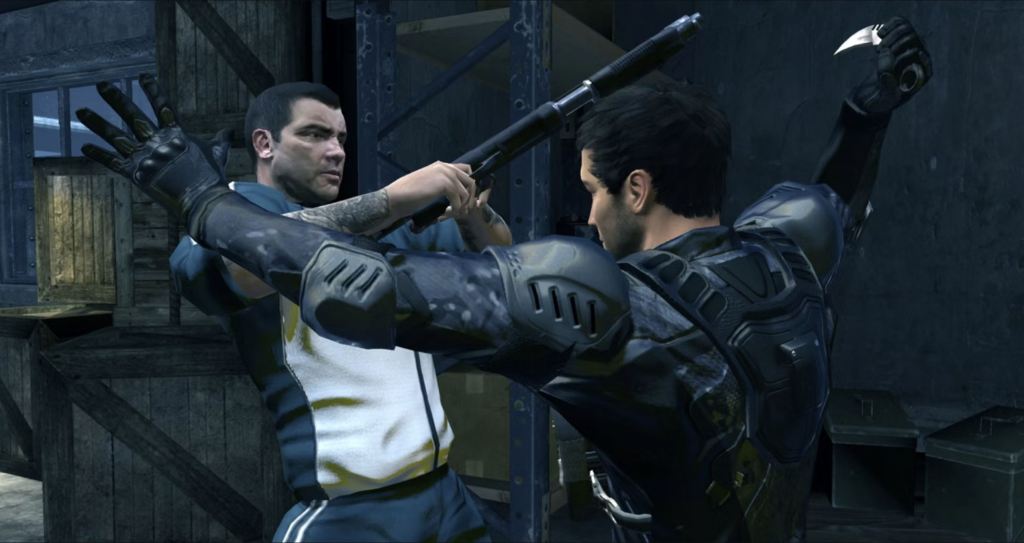
8. Alpha Protocol
The very nature of Alpha Protocol brings to mind that famous Hunter S. Thompson line, “Too weird to live, and too rare to die.”
Alpha Protocol is a third-person action developed by RPG studio Obsidian. While Alpha Protocol may look like a simple third-person espionage shooter, Obsidian’s hardcore RPG concepts come through in rather interesting ways. Most notably, players are often forced to quickly make dialog decisions that can greatly impact the rest of their adventure. Alpha Protocol’s overall story isn’t quite up to Obsidian’s absurdly high standards, but few games have ever come close to replicating the panic that these often ambiguous choices inspire. Players are able to spend skill points in areas that genuinely impact how they play the game, which lends the gameplay a pleasantly familiar RPG feeling.
That’s the thing about Alpha Protocol. At a time when breezy action games with relatively weak RPG elements are fairly common, Obsidian’s attempt to make a game that represented the very best of those genres feels even more special. Some of the specific ways they tried to pull off that ambitious concept are a bit awkward, but it’s hard to be too hard on what essentially amounts to a fantastic Mission: Impossible game made by one of the best RPG studios ever.
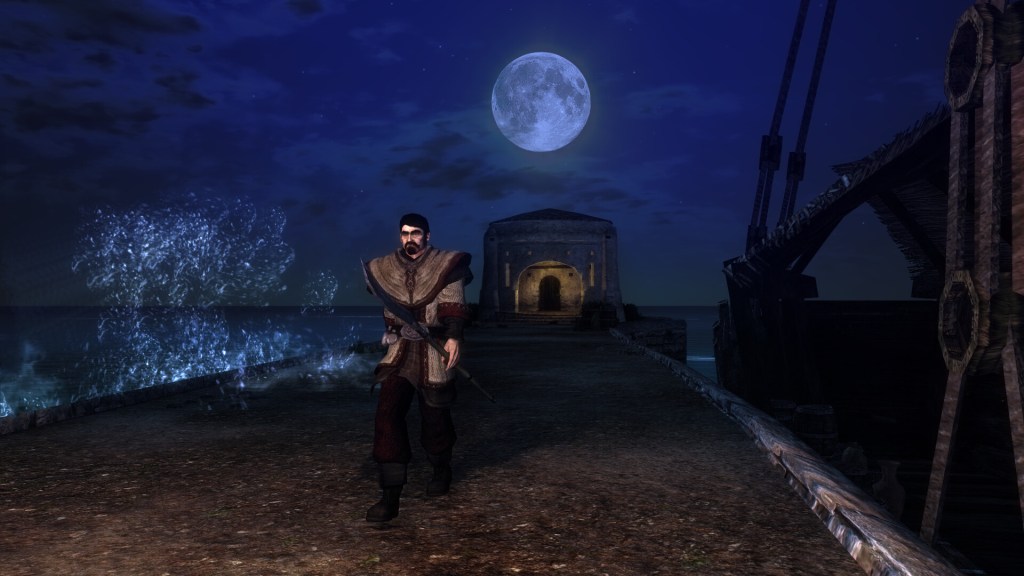
7. Risen
Following the shortcomings of the ambitious (yet unbearably buggy) Gothic 3, developer Piranha Bytes decided to return to their roots with Risen. Rather than try to make the largest RPG they could, Piranha Bytes decided to make a game that simply felt much larger than it actually was. Of course, at a time when open-world RPGs were quickly becoming the standard, some fans saw Risen’s slightly smaller, “Eurojank” nature as a relic of another time.
Maybe it is, but relics can be valuable to the right person. Risen may be the perfect game for those who felt titles like Skyrim abandoned too many hardcore RPG concepts in favor of a wider, more accessible experience. This title doesn’t hold your hand, but the efforts you invest in it always pay off. From its exceptional collection of NPCs and sidequests to a leveling system that lets you slowly shape your character based on how you play the game, Risen’s depth makes it feel like a much larger game than it may initially appear to be.
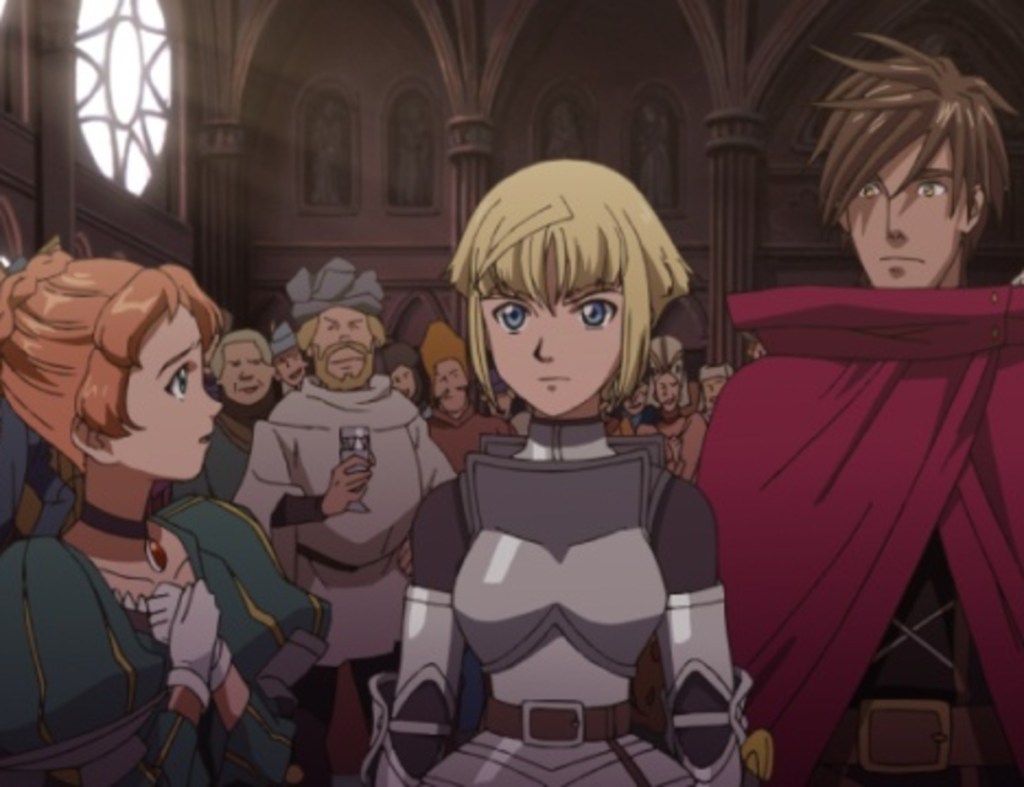
6. Jeanne d’Arc
Following their work on exceptional RPGs like Dark Cloud and Rogue Galaxy, developer Level 5 decided to take a stab at the strategy RPG genre. Despite the studio’s relative inexperience, Jeanne d’Arc has to be considered one of the most enjoyable entries in a strategy subgenre filled with masterpieces.
Loosely modeled after the story of Joan of Arc, this PSP title may be the best gateway strategy RPG ever. Some may take that as an insult, but they shouldn’t. Jeanne d’Arc’s “rock, paper, scissors” combat soon proves to be the cornerstone of a strategy RPG that sacrifices little in terms of depth while offering a generous learning curve and charm to burn.
There’s just something so special bout the ways this game combines the personality and character of a more traditional RPG with the brain-teasing elements of a great strategy RPG. The few titles that have pulled off that combo are often considered some of the very best games in their class. Jeanne d’Arc, however, sadly remains an oft-forgotten curiosity.
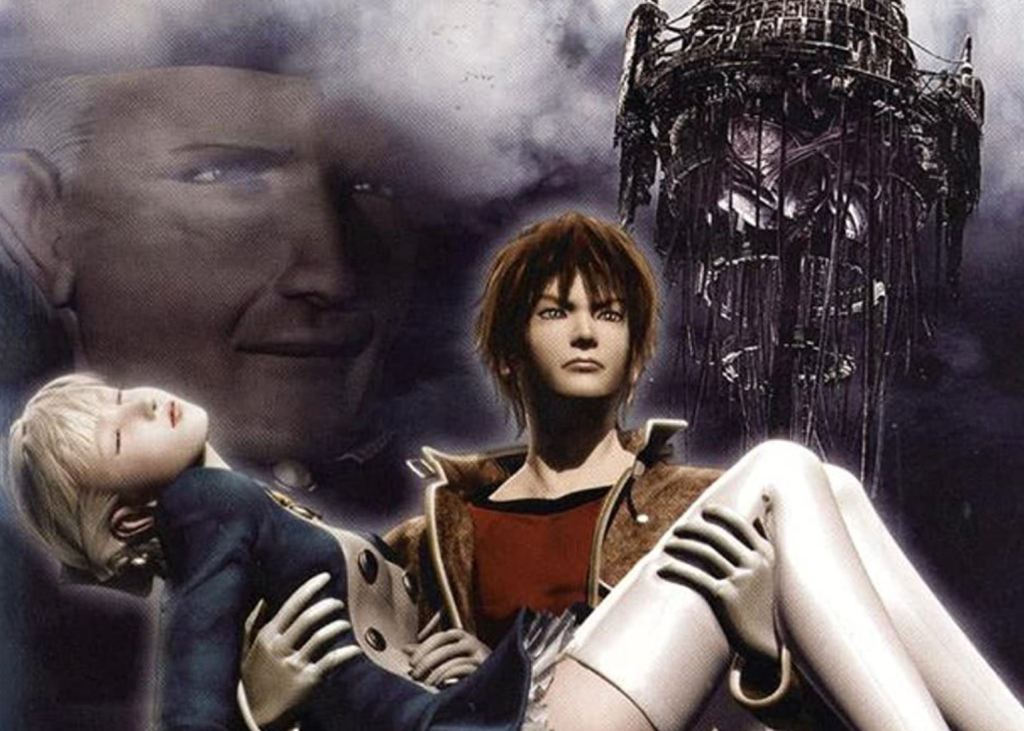
5. Shadow Hearts
Like a few of the games on this list, one of the biggest knocks against Shadow Hearts upon its release was the suggestion that the game stuck too close to too many genre tropes. In many ways, the critics weren’t wrong. Shadow Hearts is surprisingly linear, its random battles can be frustrating, and its otherwise exceptional story unfolds at a…deliberate pace. However, the considerable ace up Shadow Hearts’ sleeve is the brilliance of its Judgement Ring mechanic.
Inspired by Pachinko machines and beat-em-up games, the Judgement Ring is an input device that determines nearly every action in Shadow Hearts. Landing attacks and completing certain interactions often require you to hit certain spots on the ring. A perfect input can result in incredible bonuses. A missed input can result in completely missing an attack or interaction.
It should be frustrating, but it’s not. That Judgement Ring system not only feels like an organic extension of the game’s Lovecraftian horror elements but adds a layer of spice and intrigue to what may otherwise be increasingly familiar sequences. There is a creative energy to this game that is nearly impossible to replicate.
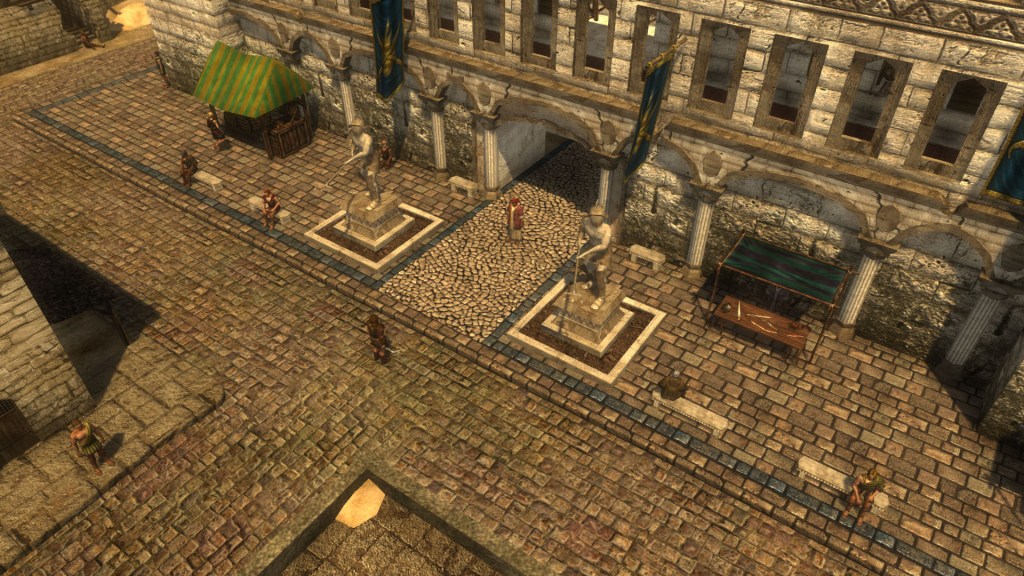
4. The Age of Decadence
If The Age of Decadence isn’t the best RPG on this list, it’s certainly one that is discussed the least in relation to how brilliant it is.
The Age of Decadence tests the limits of hardcore role-playing design. From the moment you create your character, the game forces you to play a role and play it well. That’s not to say that it limits you to a certain style of play but rather that it doesn’t allow you to take an easy route that doesn’t feel true to your character. A thief won’t last long in combat, and a barbarian won’t be able to persuade many people through dialog. Some roads are simply not available to you. However, because every single thing you do in this game can have consequences, you always need to consider what the possible ramifications of your decisions may be and how your choices represent your character.
This game is blunt in the ways it will challenge and even frustrate you with its unabashedly hardcore approach to role-playing. Those drawn by that promise though, will struggle to find few games quite like this one.
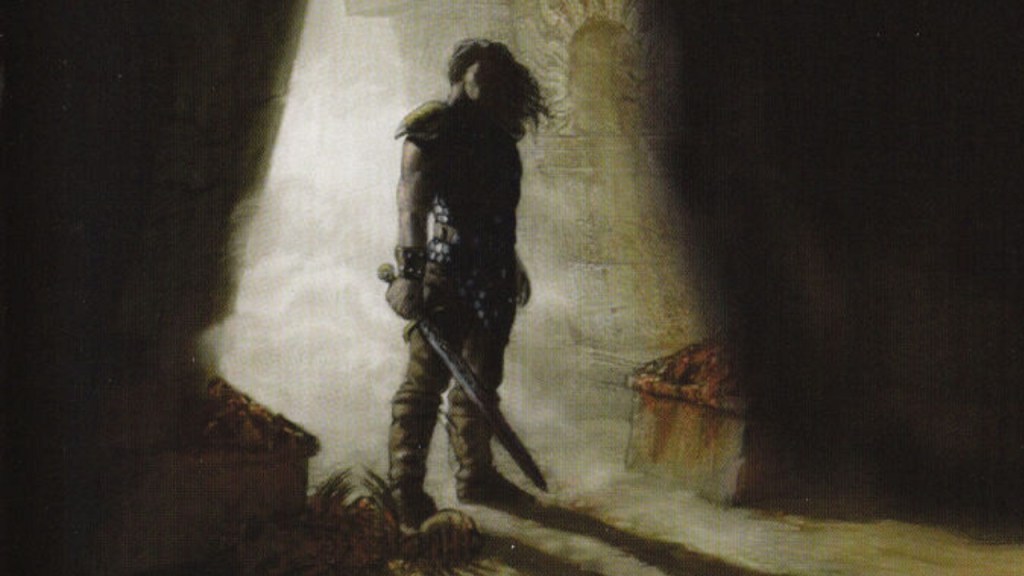
3. Arx Fatalis
Long before they were relegated to Redfall, developer Arkane Studios established their immersive sim credentials with Arx Fatalis.
In the world of Arx Fatalis, the failing sun has forced survivors to make a new home underground. While that premise makes Arx Fatalis something of a dungeon crawler, few dungeon crawlers afford the player as much freedom as this game does. Where you go, what you find, and how you interact with all of it are all dynamically determined by your actions. Even casting spells requires you to trace movements in the air as if are waving a wand or staff.
Unfortunately, Arx Fatalis proved to be the first entry in Arkane’s strange history of brilliant games that struggle to achieve any notable level of commercial success. Thankfully, time has done little to tarnish this game’s brilliance.
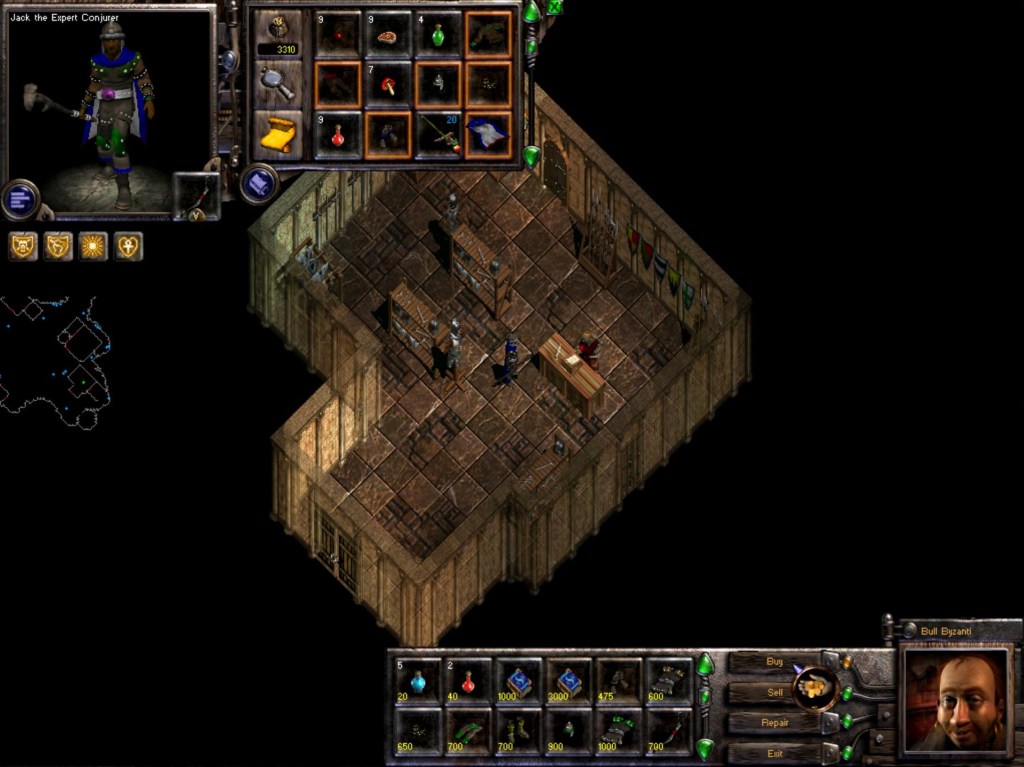
2. Nox
Released about a month after Diablo 2, Nox’s legacy has long been tied to that revolutionary and wildly successful RPG. While both games are indeed ARPGs that play out from an isometric perspective, that’s roughly where the comparisons between the two titles end.
In fact, the best thing about Nox is how it reimagines so many ARPG concepts. Its “fog of war” system (which was undoubtedly inspired by developer Westwood’s Dune and Command and Conquer games) forces you to constantly consider what direction you are looking and how you navigate the world. The game’s magic system encourages you to study the functionality and properties of spells rather than simply clicking a button. Even the class you choose at the beginning of the game drastically alters the events of the story.
There are so many Diablo clones out there (many of which are very good), but it’s a shame we never got more games in the style of Nox. It’s an inspired and intelligent examination of the ARPG genre that replaces every rule it breaks with a fascinating new idea.
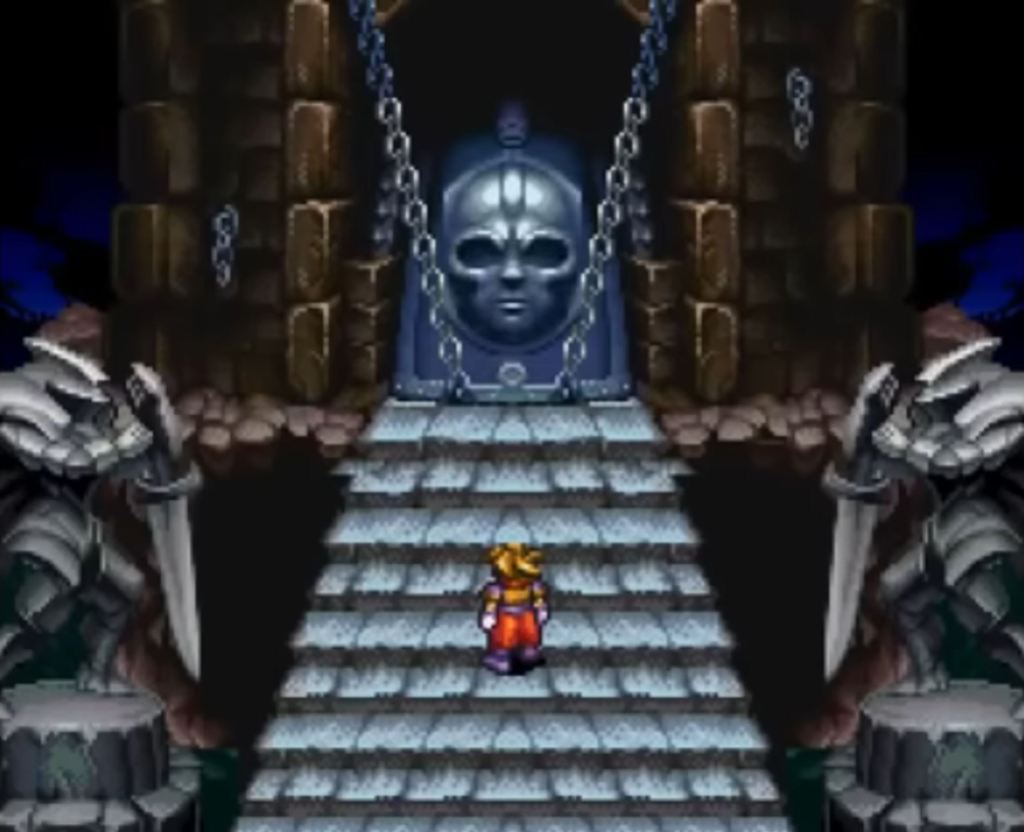
1. Terranigma
Some of you may have been fortunate enough to grow up with the excellent (and also often underrated) action RPG Illusion of Gaia. What you may not know, though, is that Illusion of Gaia is actually part of an unofficial trilogy of RPGs developed by Quintet. While 1992’s Soul Blazer got that trilogy off to an excellent start, it’s the final piece of that spiritual series (1995’s Terranigma) that fully realized the potential of their vision.
Terranigma is similar to Illusion of Gaia in many ways, but everything here feels so much more refined. The adventuring portions of the game have more of a Zelda-like quality to them that makes the moment-to-moment gameplay feel so much more enjoyable. While the title’s role-playing elements are sometimes limited to upgrading your character’s stats and gears, the game’s surprisingly dynamic combat system affords you a welcome degree of freedom. Best of all, the game’s jaw-dropping storyline is perfectly complemented by its stunning presentation value. Seriously, this is one of the best SNES soundtracks ever.
While Terranigma wasn’t initially released in North America, it’s relatively easy to find today. Any fans of the SNES era need to experience it.
